How a joke about the milkman inspired Psychonauts' best level
Tim Schafer and developers at Double Fine walk us through the mind-bending Milkman Conspiracy.
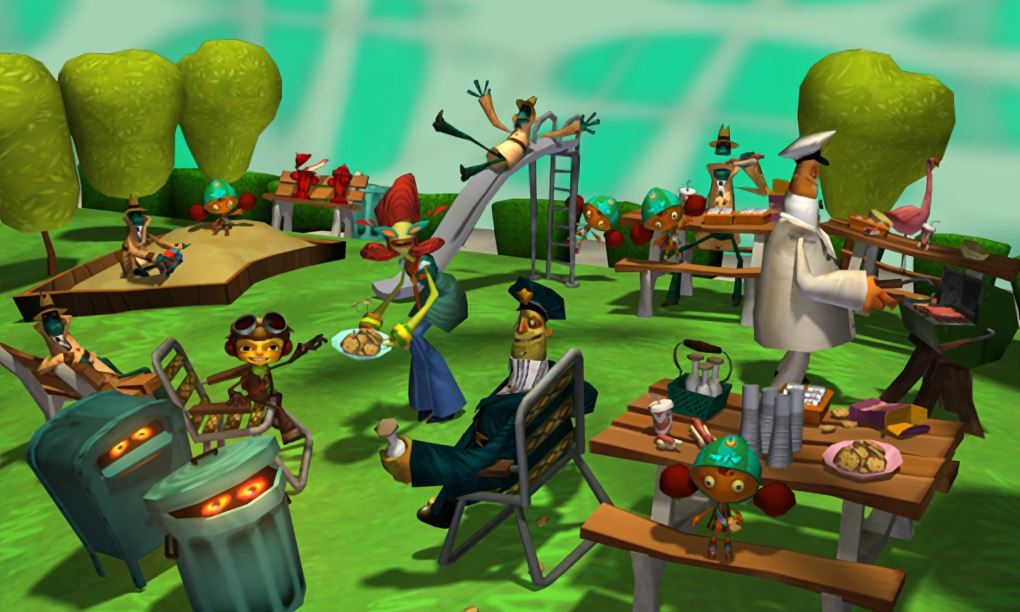
The Milkman Conspiracy started, as many great things do, in a Thai restaurant. Or maybe it didn't. Tim Schafer can't remember exactly. Somebody—perhaps him—came up with the phrase 'I am the milkman, my milk is delicious', and it may or may not have been during a Double Fine team meal. "I wish someone had said it at the restaurant, because their milk was delicious," he says.
Either way, those eight words unified ideas that had been buzzing around his head for a conspiracy theory-themed Psychonauts level. It's how most levels for the zany platformer started: Schafer brought the concept, the artists re-imagined it, the designers dreamt up the gameplay, and then the world builders and programmers brought it to life. So how did The Milkman Conspiracy go from a simple, silly phrase to one of the most beloved levels in a beloved game?
How did The Milkman Conspiracy go from a simple, silly phrase to one of the most beloved levels in a beloved game?
Schafer has always been fascinated by people who genuinely believed conspiracy theories, and wanted to know what was going on inside their heads.
"I loved the movie Capricorn One when I was a kid, on faking the moon landing. Just the idea that someone would think [it was true] was so funny to me, in the same way some people think flat earthers are funny now, but I find it very sad, because it's just a symptom of how scary and misleading the internet can be," he says.
He drew up a chart of conspiracies and linked them all to a central character, Boyd. Some of the theories were famous, or taken from movies. Some were inspired by office chats, others by a homeless man named Doug, who lived on the streets nearby. "We'd pay him $10 a week to sweep our driveway," Schafer says. "He had ups and downs. Certain days he thought the government was trying to do things with him, and some days he didn't. It was interesting to talk to him… trying to get inside of his head was very inspirational for the level. I still see him around the neighbourhood."
Psychonauts was an exercise in dealing with mental illness in a comic way—the team were conscious of never "punching down" and wanted players to empathise with the characters, Schafer says. For Boyd, that meant showing the problems he'd been wrestling with: Being fired from a string of jobs and having an alter-ego implanted in his mind by Psychonauts villain Oleander.
That alter-ego was, of course, the Milkman.
The biggest gaming news, reviews and hardware deals
Keep up to date with the most important stories and the best deals, as picked by the PC Gamer team.
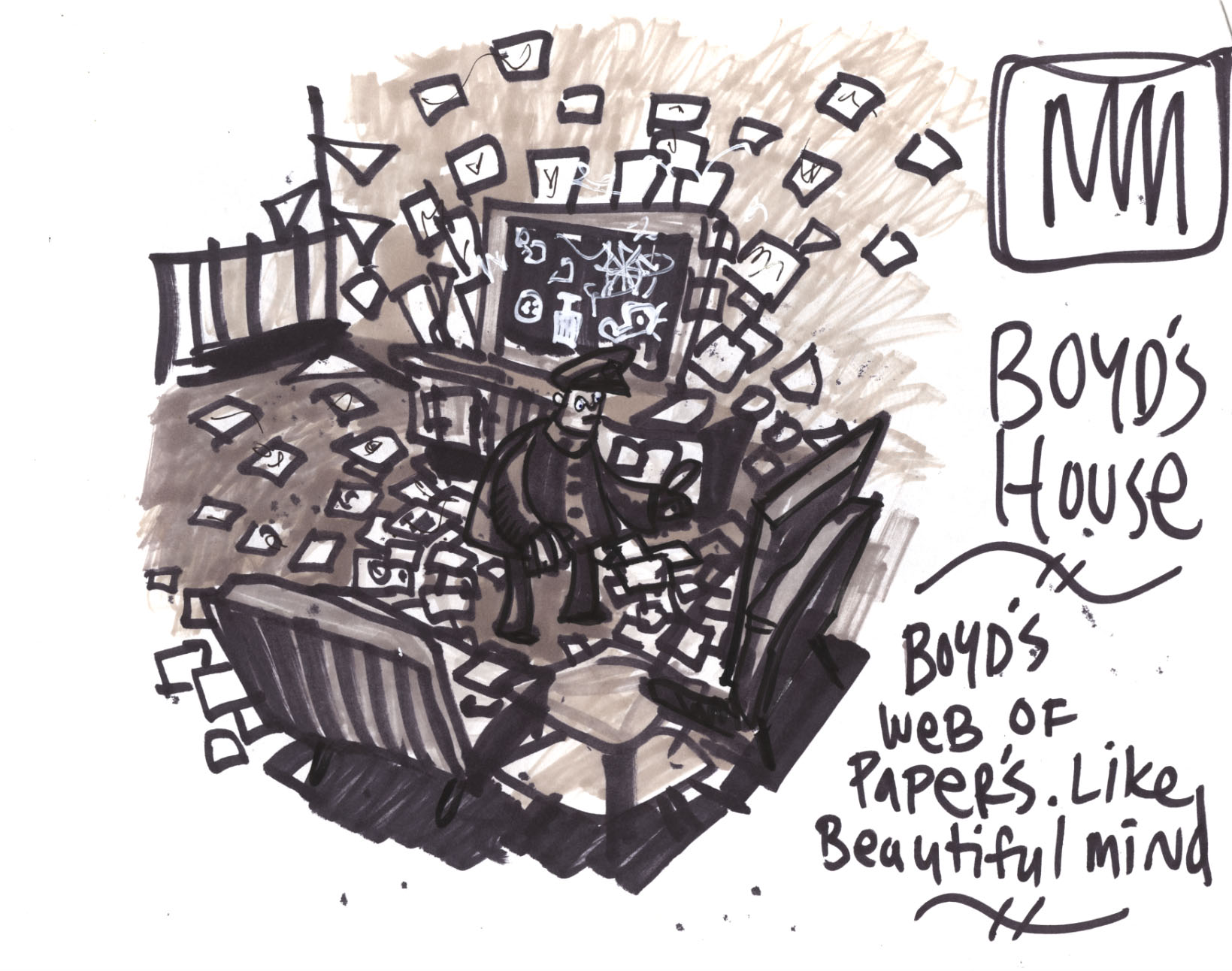
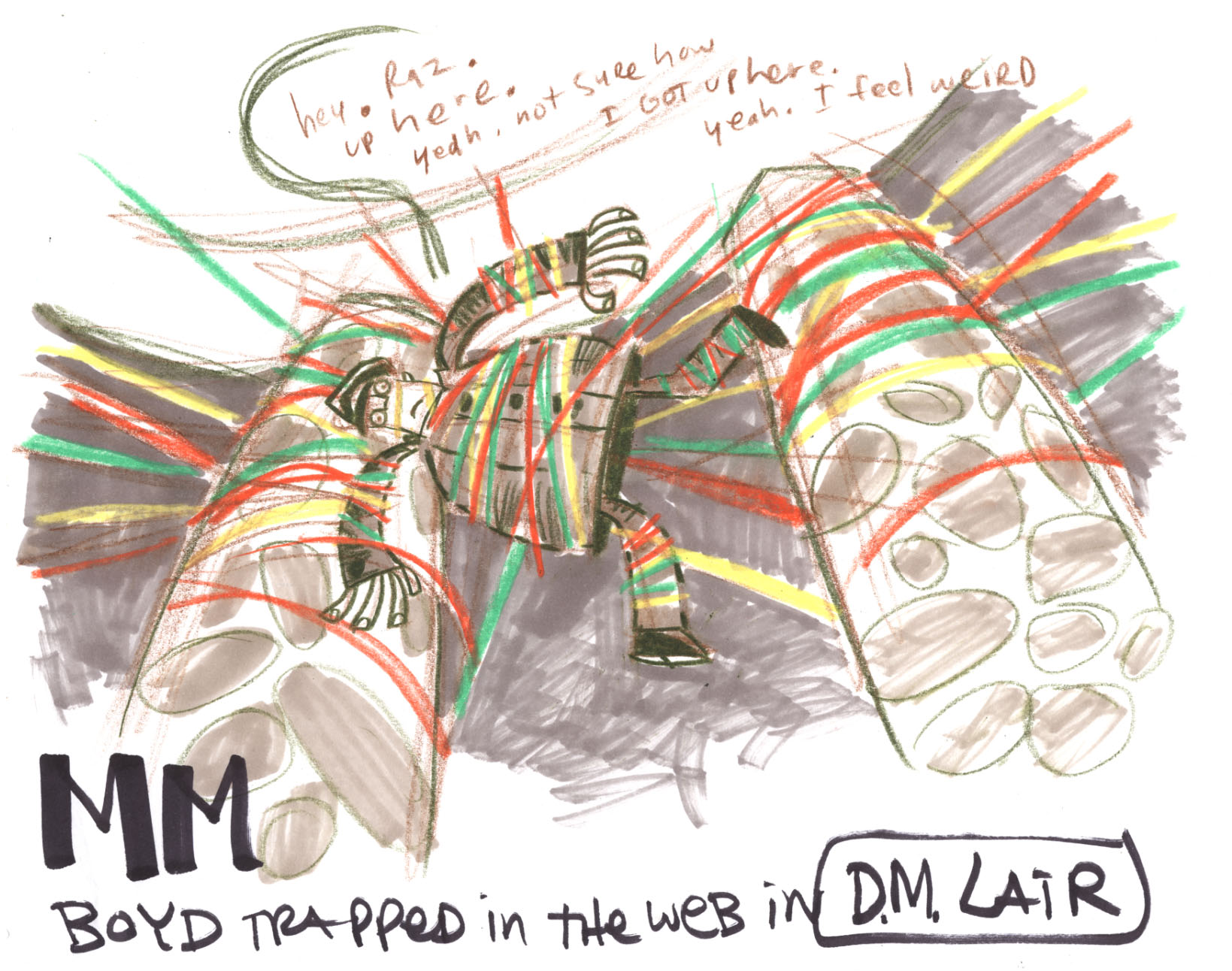
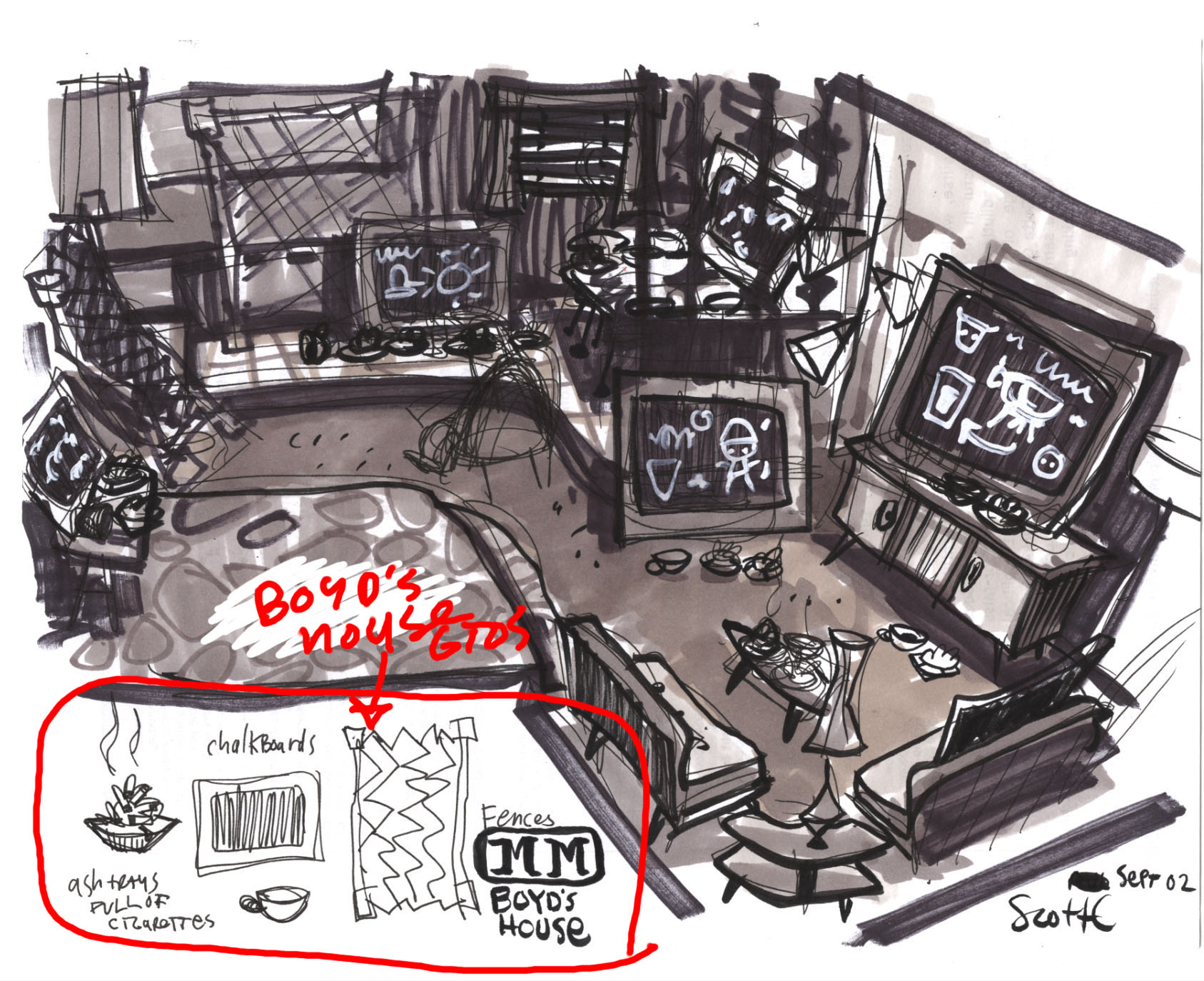
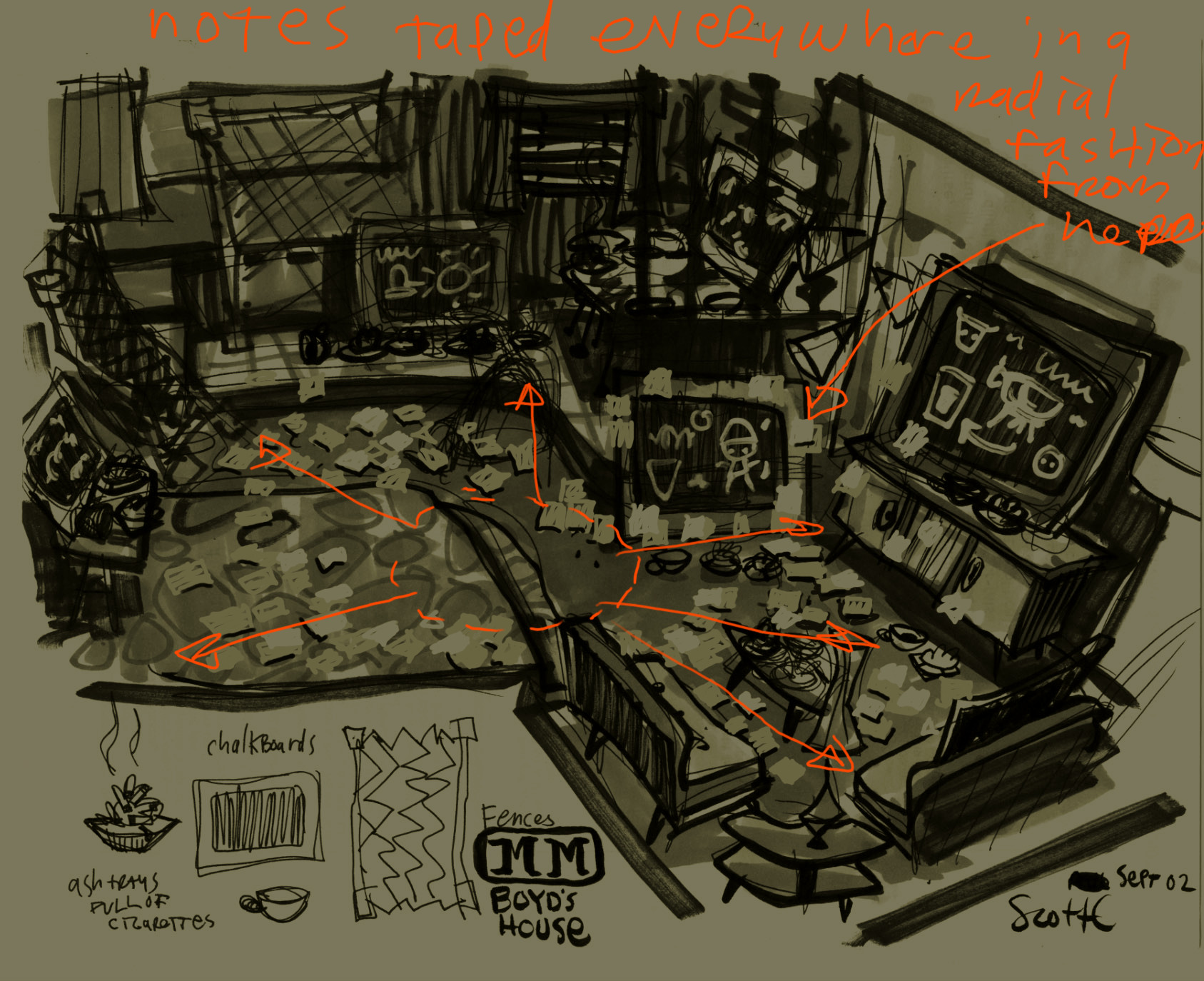
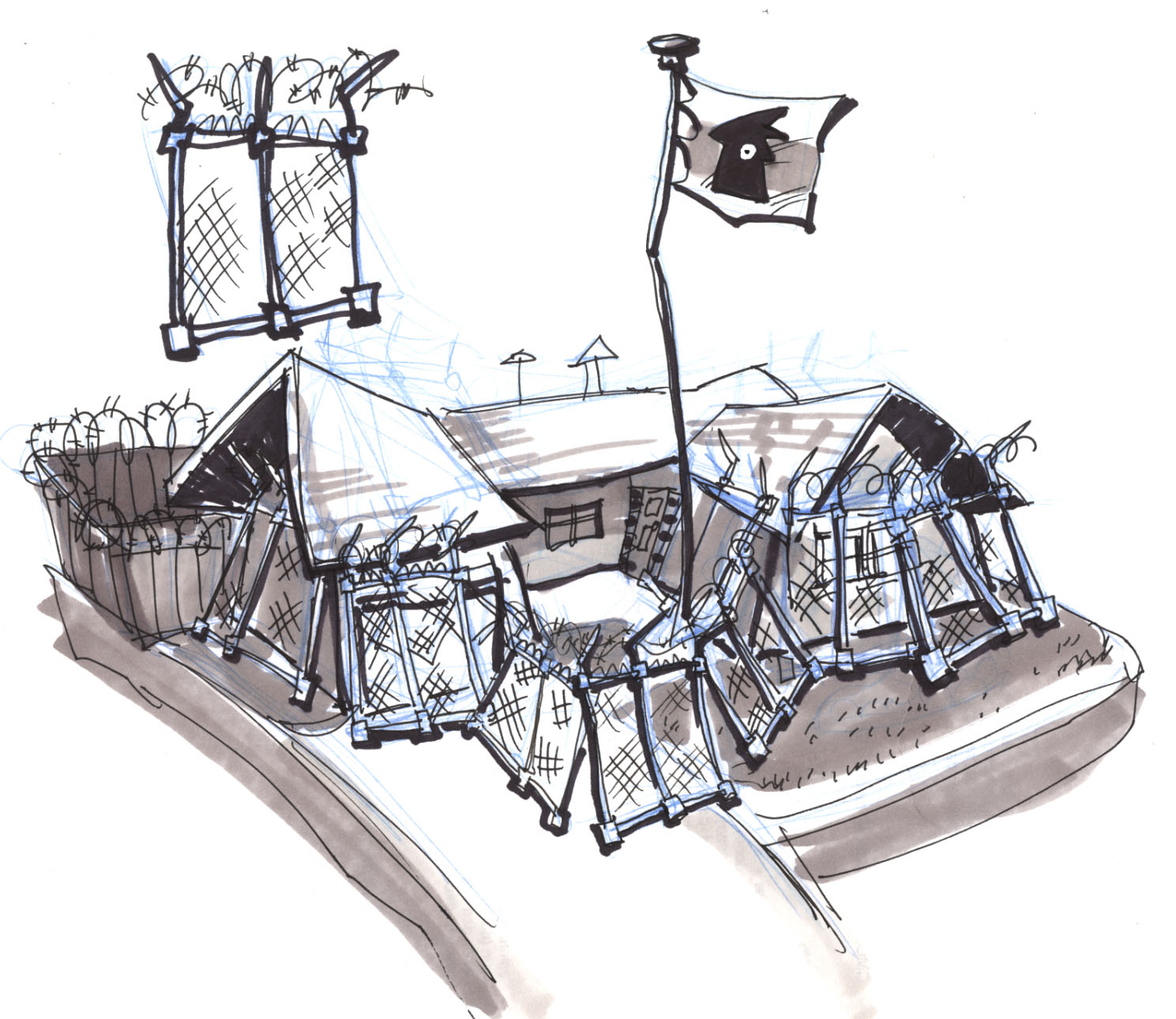
Visually, Schafer imagined Boyd's mind world as a giant spider's web, with Boyd's house at the centre. He also wanted it to give it a retro, '50s spy vibe, and thought a suburban neighborhood would be the perfect setting: Relatively mundane on the surface, but hiding a dark secret. He gave the concept to his artists.
Art director Scott Campbell tells me he wanted to emphasise paranoia, and he drew eyes and binoculars popping out of trashcans, mailboxes and bushes to make the player feel like they were being watched. He also came up with the G-Men, who kept an eye out for suspicious activities.
"I based their outfits on the classic '50s G-Men detectives in their overcoats and hats, reminiscent of the Spy vs Spy comics in Mad magazine and every single TV show from that time period," he says. "I just loved that spies always wore those overcoats and people were supposed to not notice them in hotel lobbies or on park benches with their newspapers covering their faces, with just their eyes showing."
Campbell says the team found it funny to simply give the G-Men a single object as a disguise, and have them act out what was clearly the wrong use for that object. It's why you see G-Men using red stop signs to hammer in imaginary nails, or playing a bouquet of flowers like a guitar, and it's the root of much of the level's humour.
Schafer recalls the initial magic of the level coming from a drawing by concept artist Peter Chan. "Suburbia is supposed to look mundane, but what if it was all just vaulted up against the sky? He had this drawing of the roads bent and twisted in the air, like [Boyd's] thinking was twisting back on itself and illogical.
"And I was like, 'woah', the programmers were like, 'woah'."
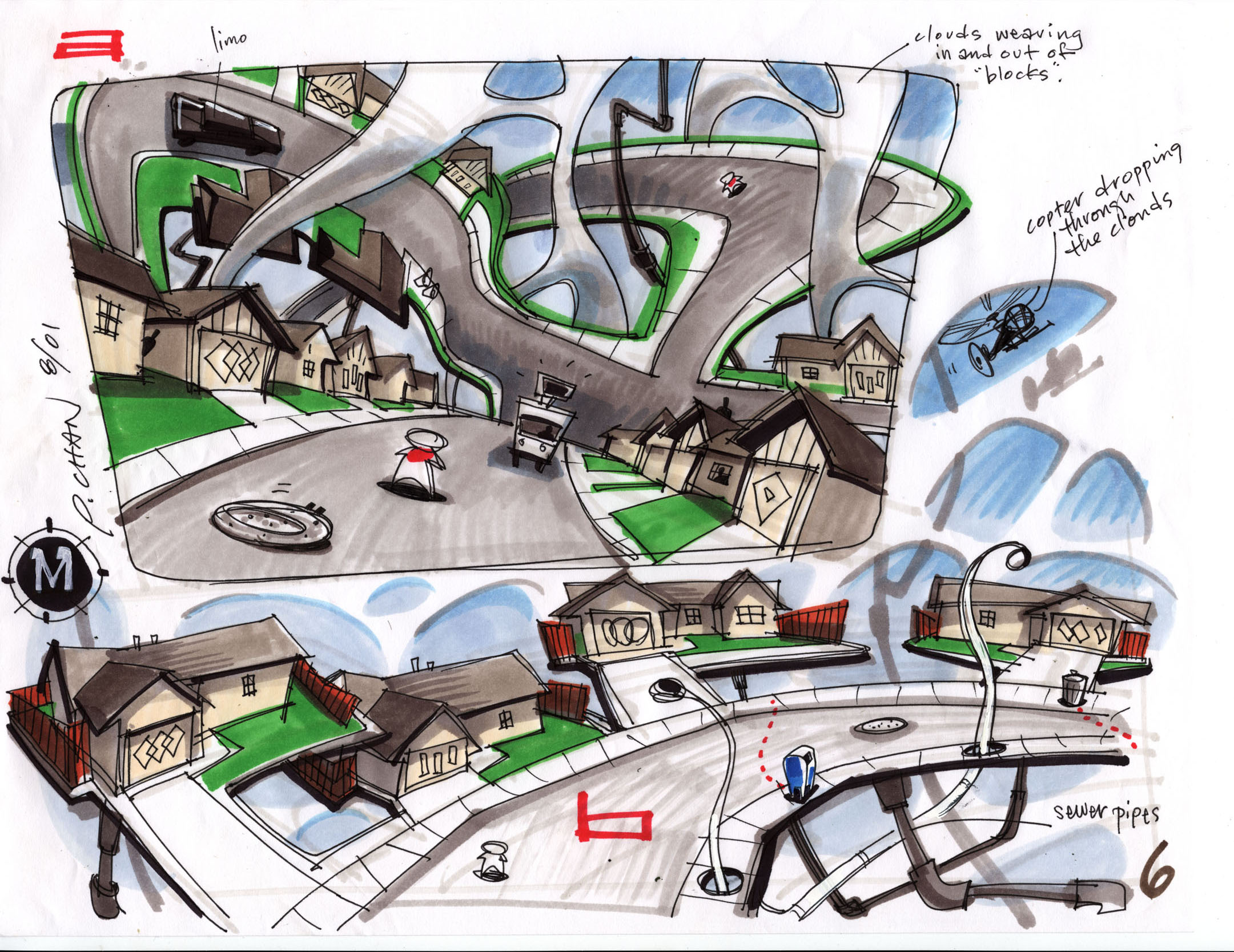
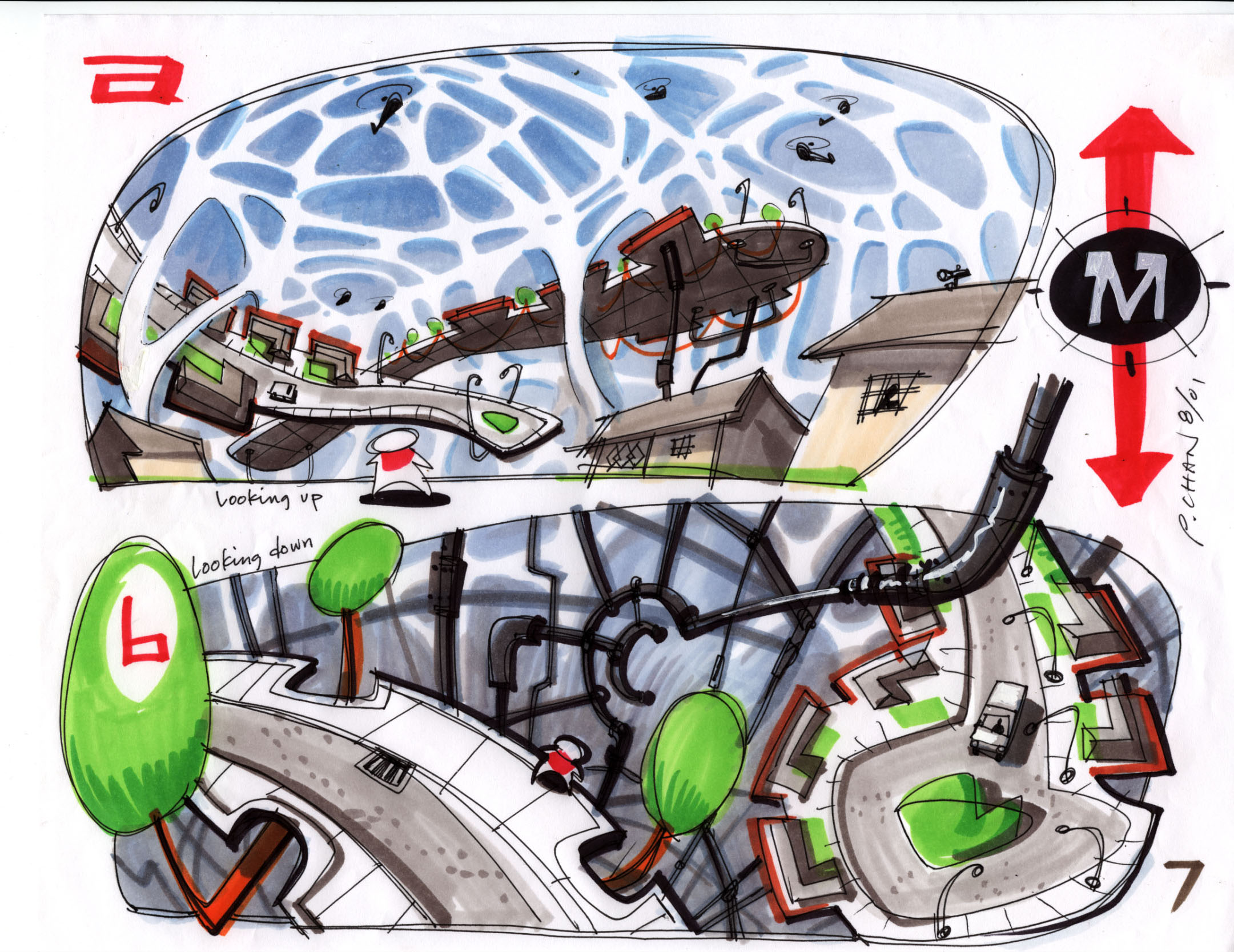
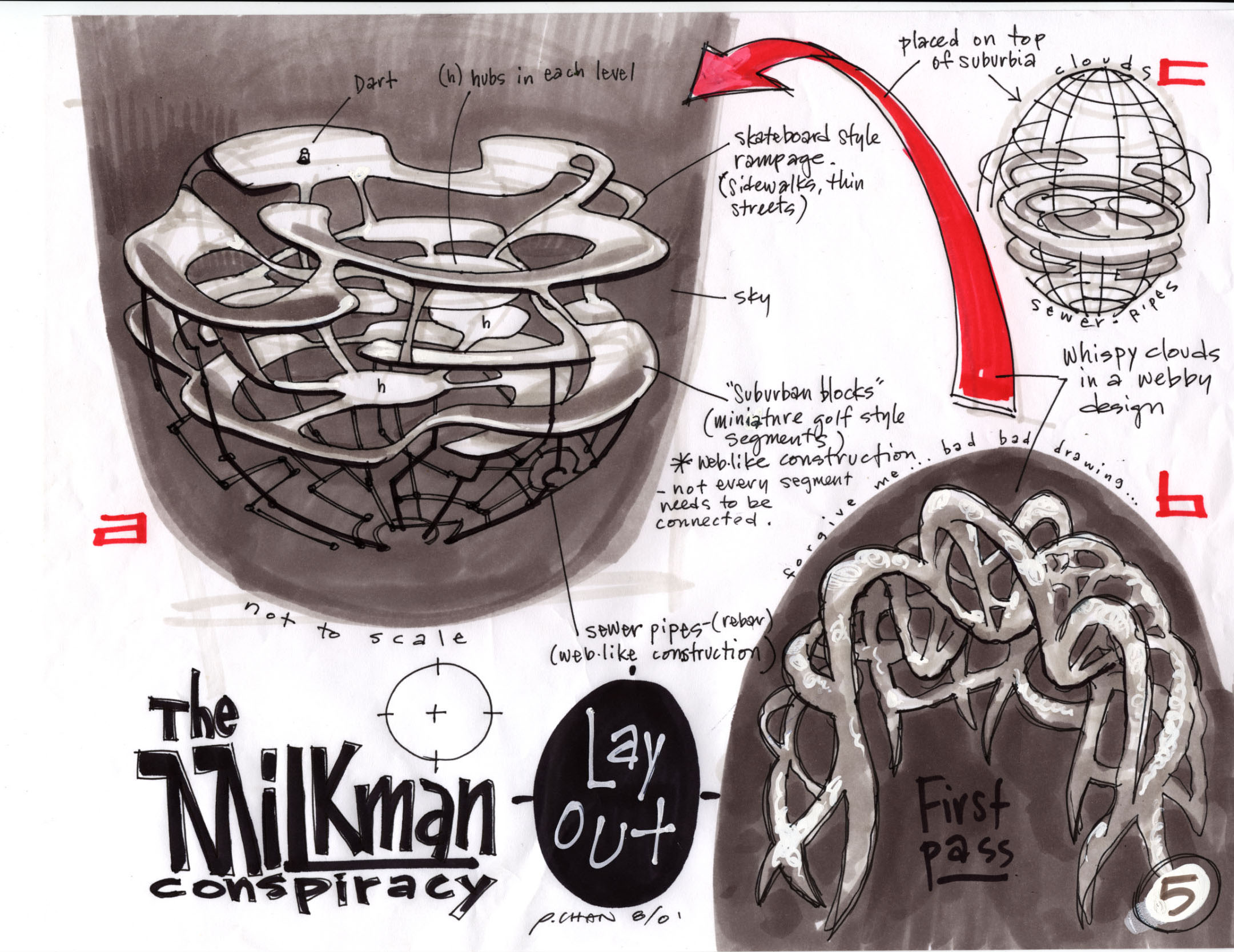
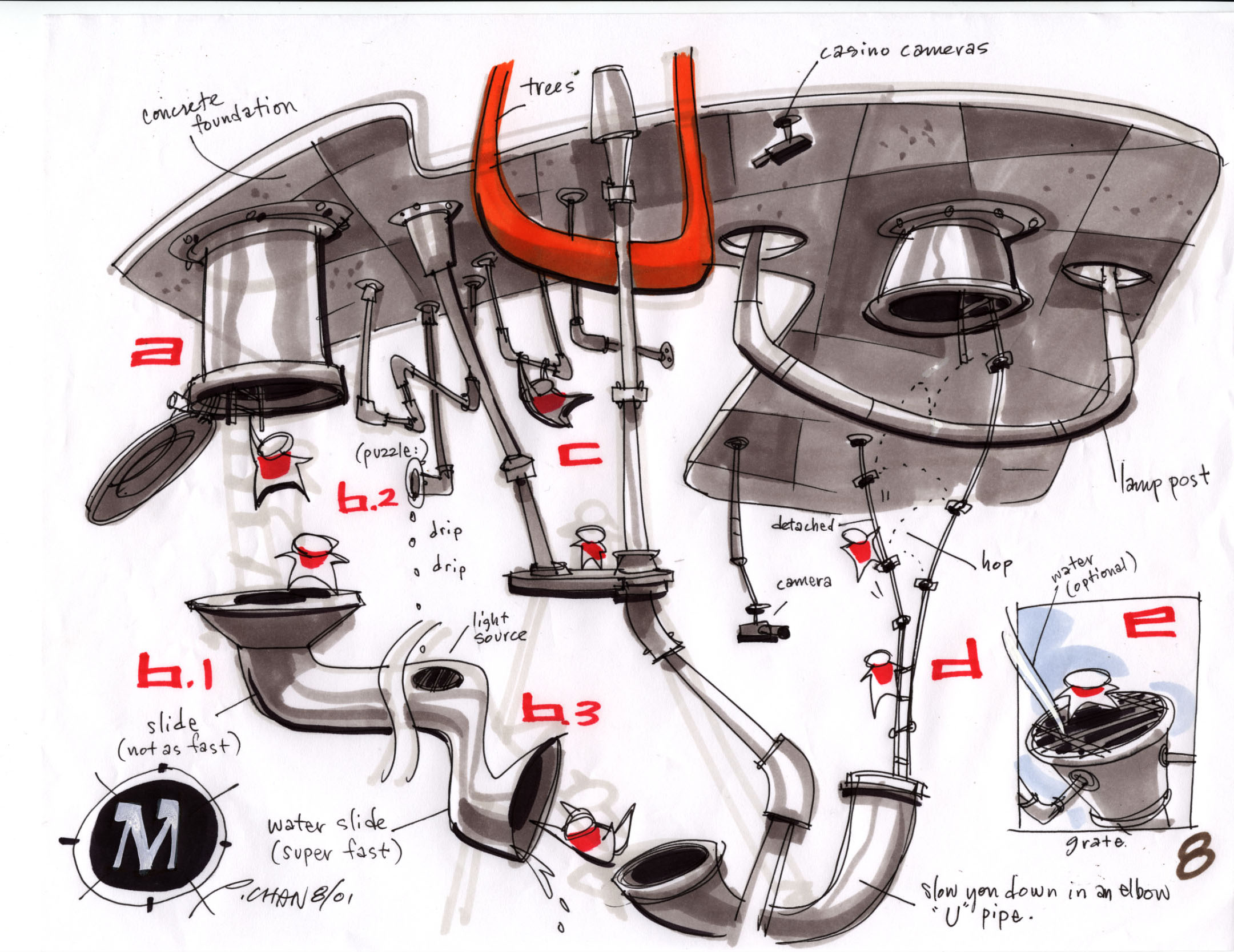
Schafer knew instantly that was the road to pursue, but he still had no idea what the gameplay would look like, so he brought in lead designer Erik Robson. Up until that point in the game, the team hadn't used the player's inventory much, and Robson was keen on an adventure game-style level where players combined items in their inventories to solve puzzles.
Those puzzles would be themed around the G-Men guarding certain areas, and the players would have to carry the right item to blend in. It fit well with Clairvoyance, a psychic power that let protagonist Raz see through the eyes of other characters, which had come from Schafer's research into psychic abilities.
The trick, Robson tells me, was to make every possible item and Clairvoyance interaction entertaining, including failures. The team knew players would try to combine seemingly unconnected items, or try out their powers on inanimate objects, so they created a huge spreadsheet of every possible interaction, filling each box with a new idea.
"We know we have to have something fun for if I use the clairvoyance on the feather I'm holding, for example," he says, "We knew those interactions would all be possible… it ends up being a situation where a bunch of creative people have to brainstorm and come up with fun solutions, and hopefully, that ends up being entertaining for a player."
Sometimes those interactions would be simple: When used on a keypad, Raz is seen as a giant finger. But others would require more time and effort, and one of the brilliant things about Double Fine was that three designers were allowed to take three days to come up with the right concept.
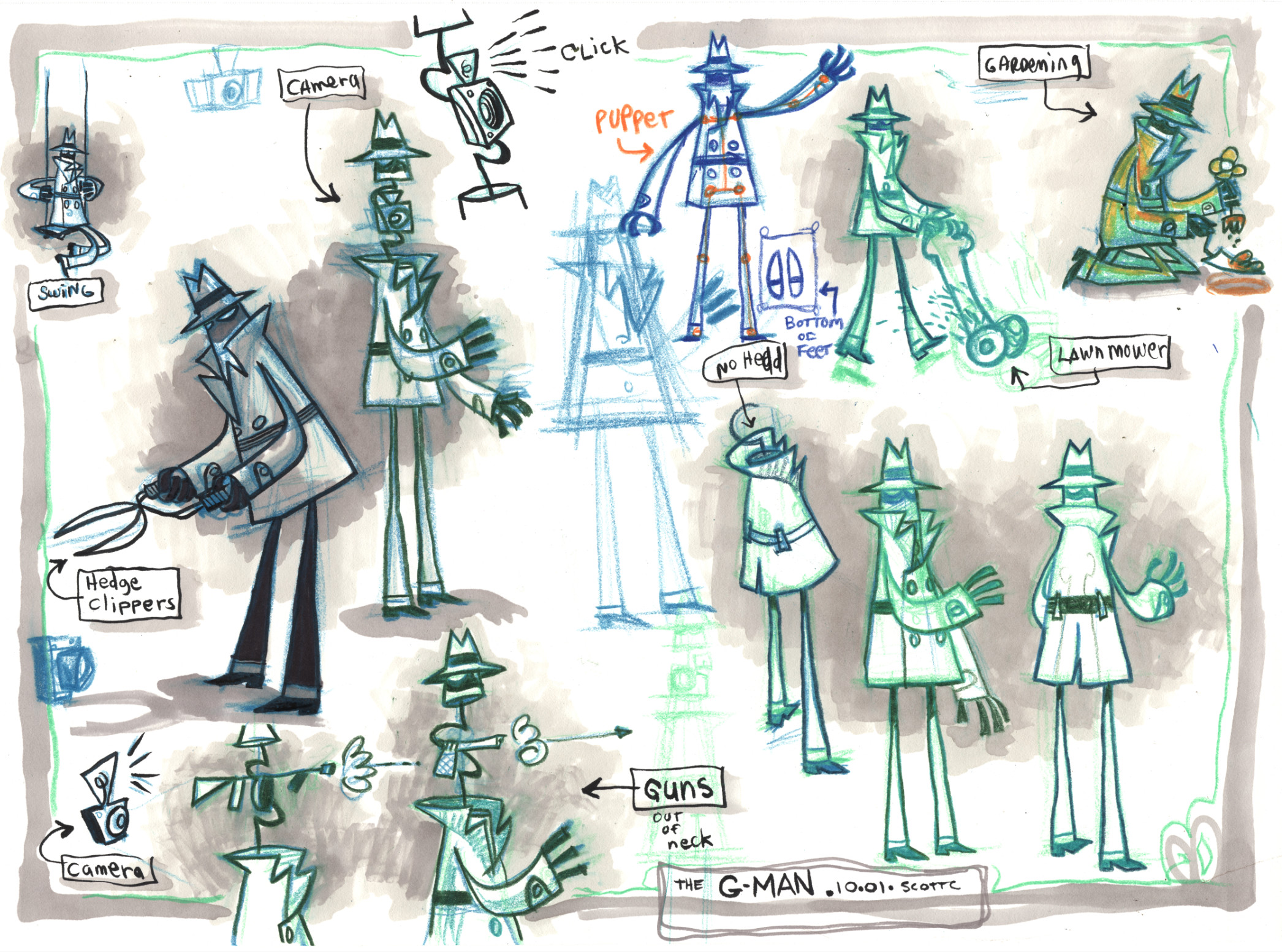
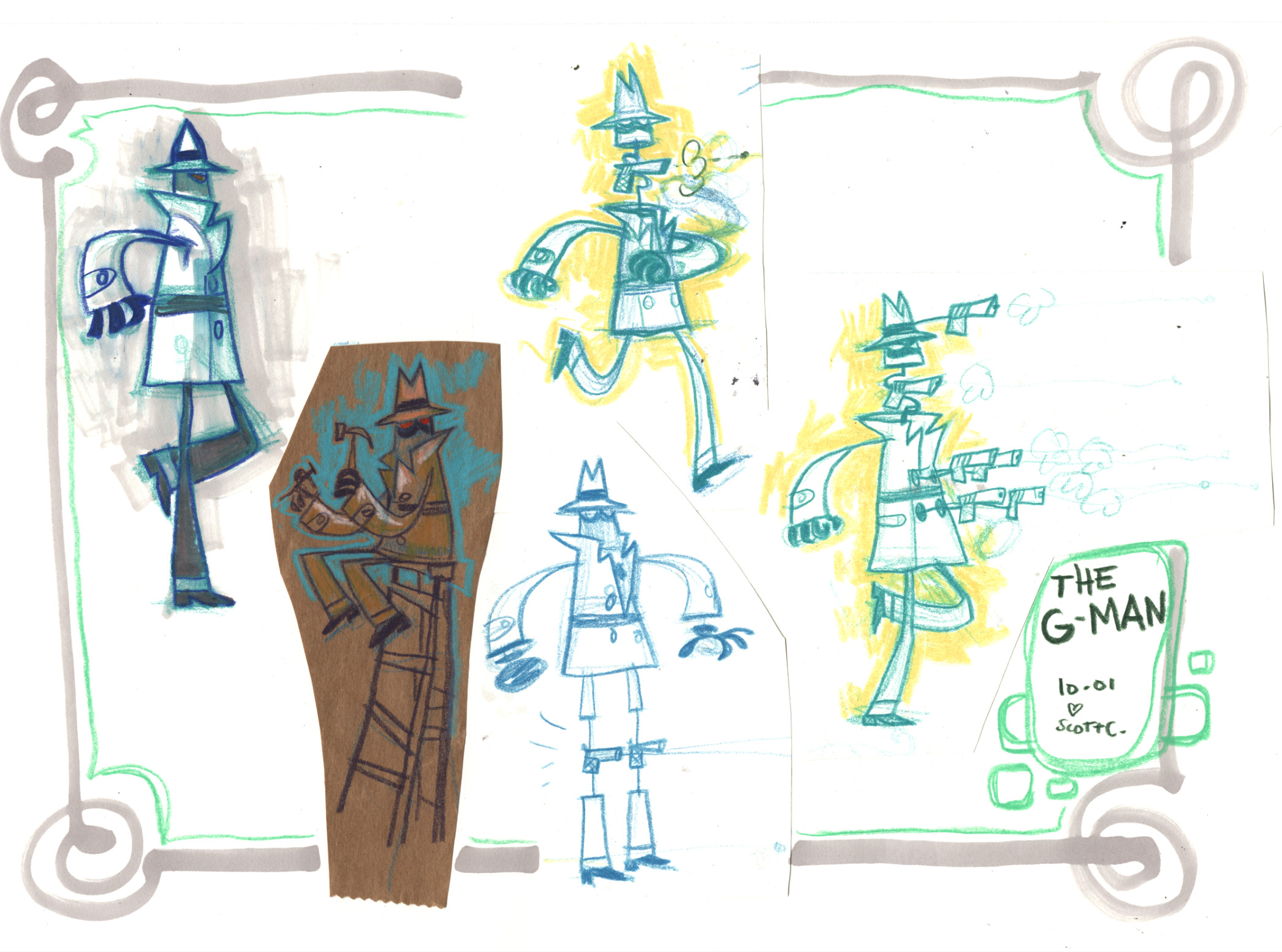
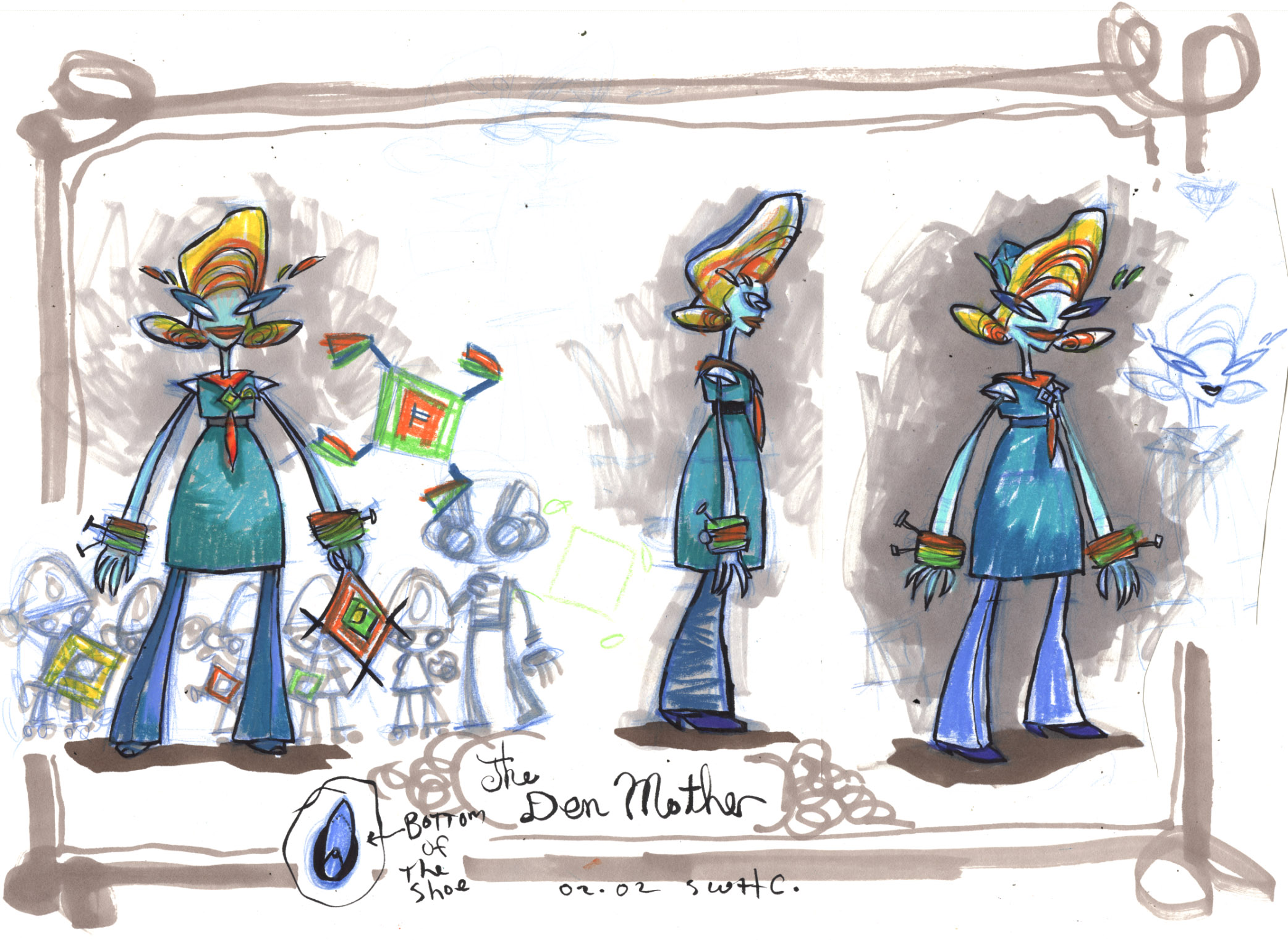
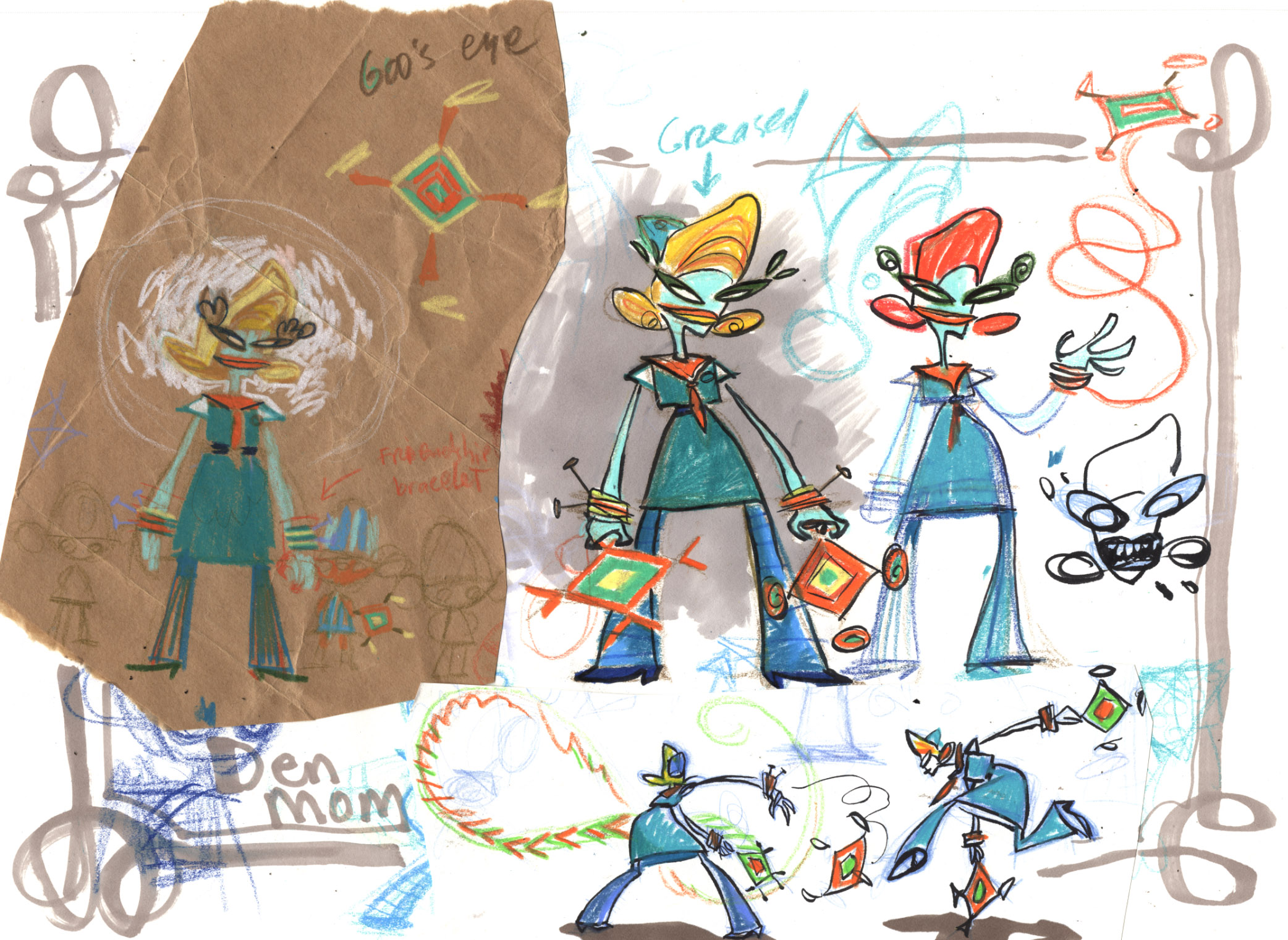
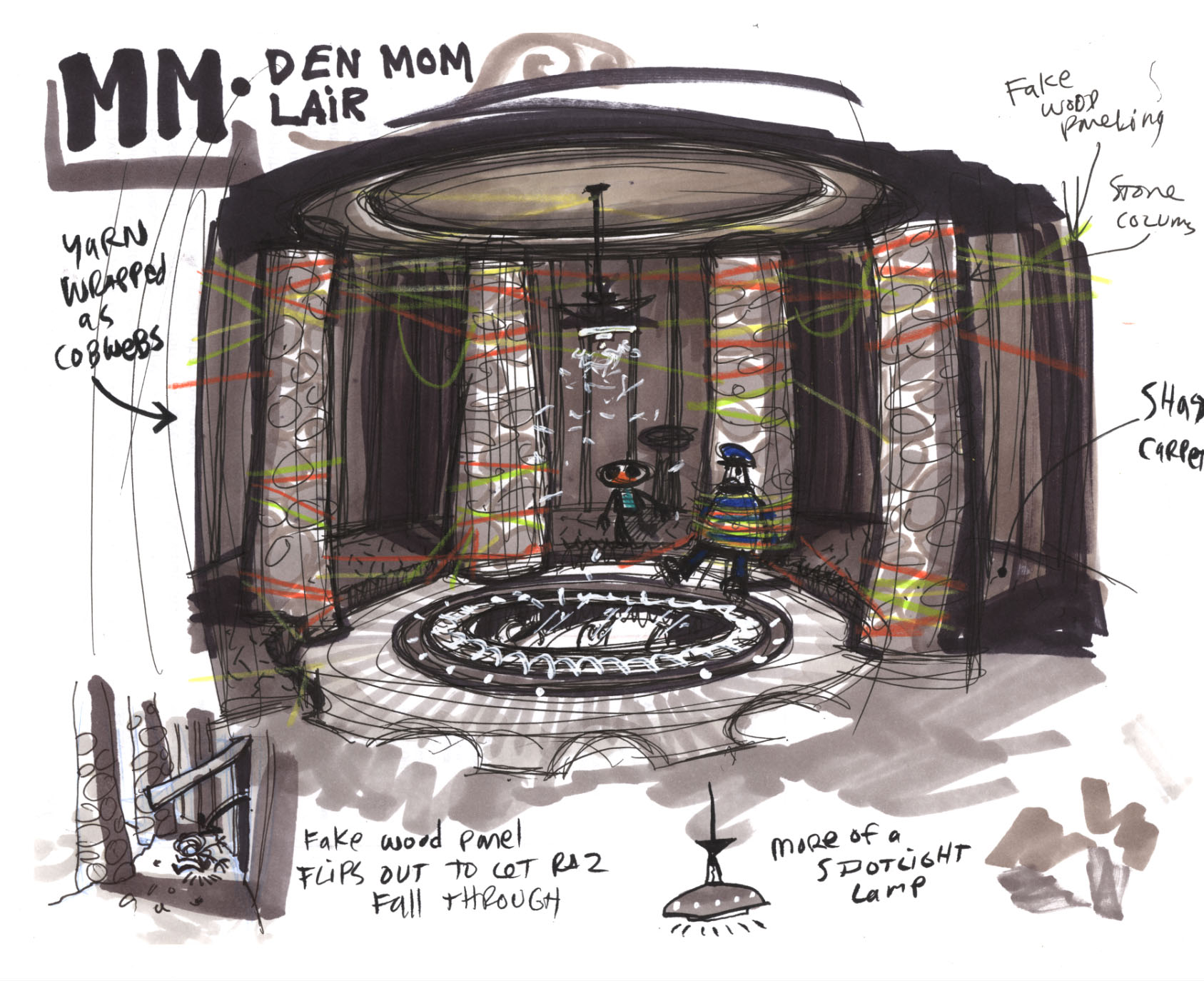
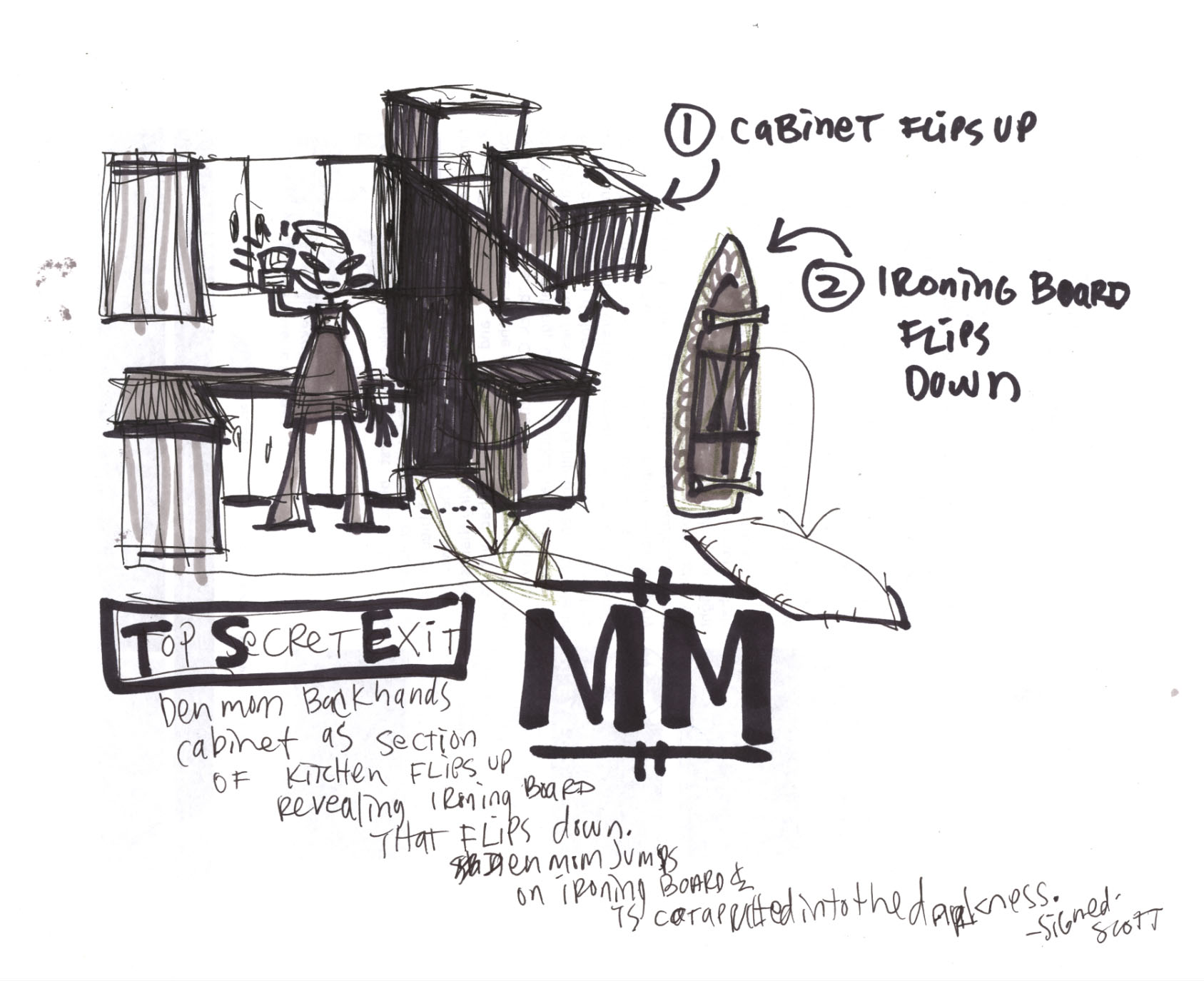
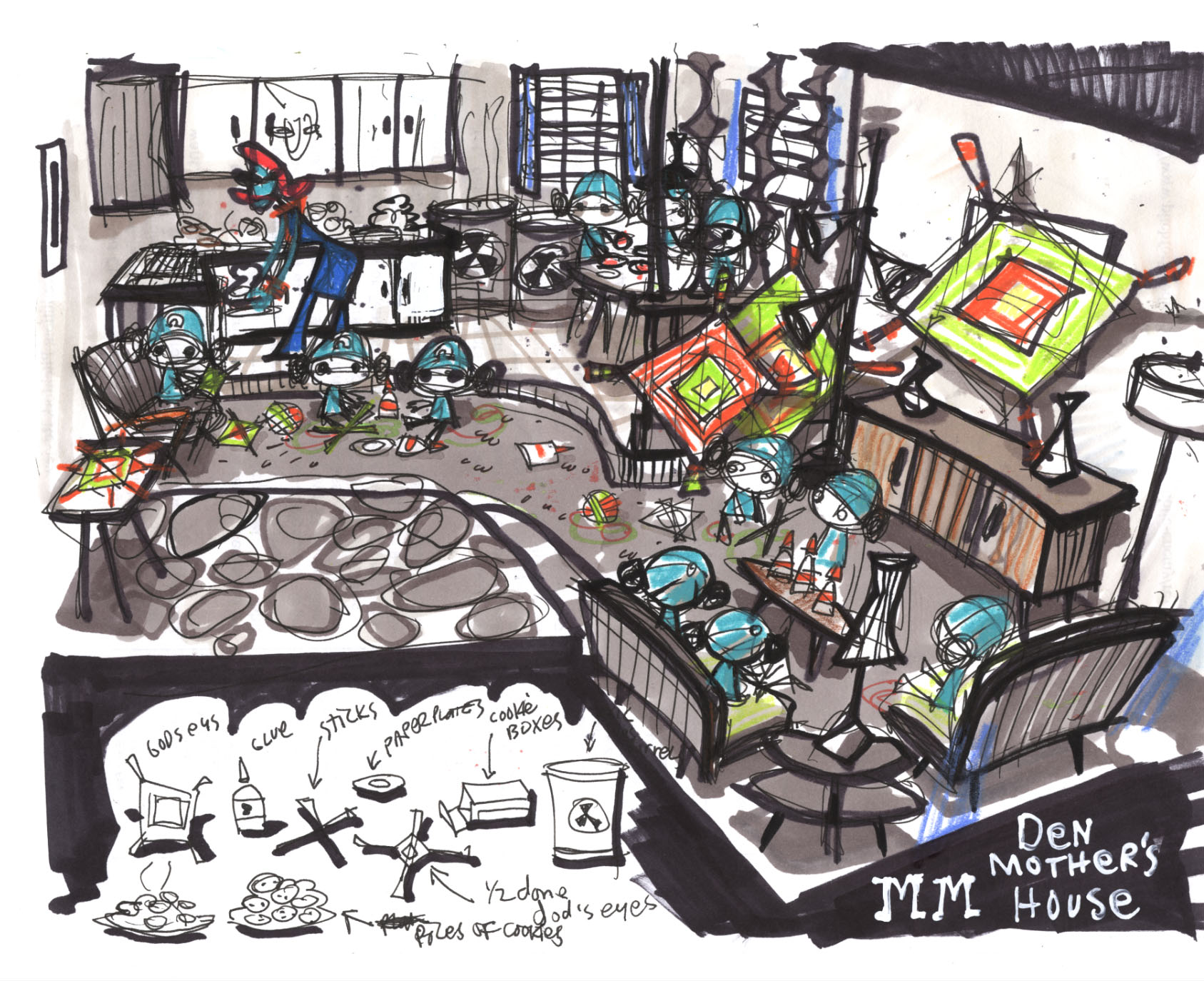
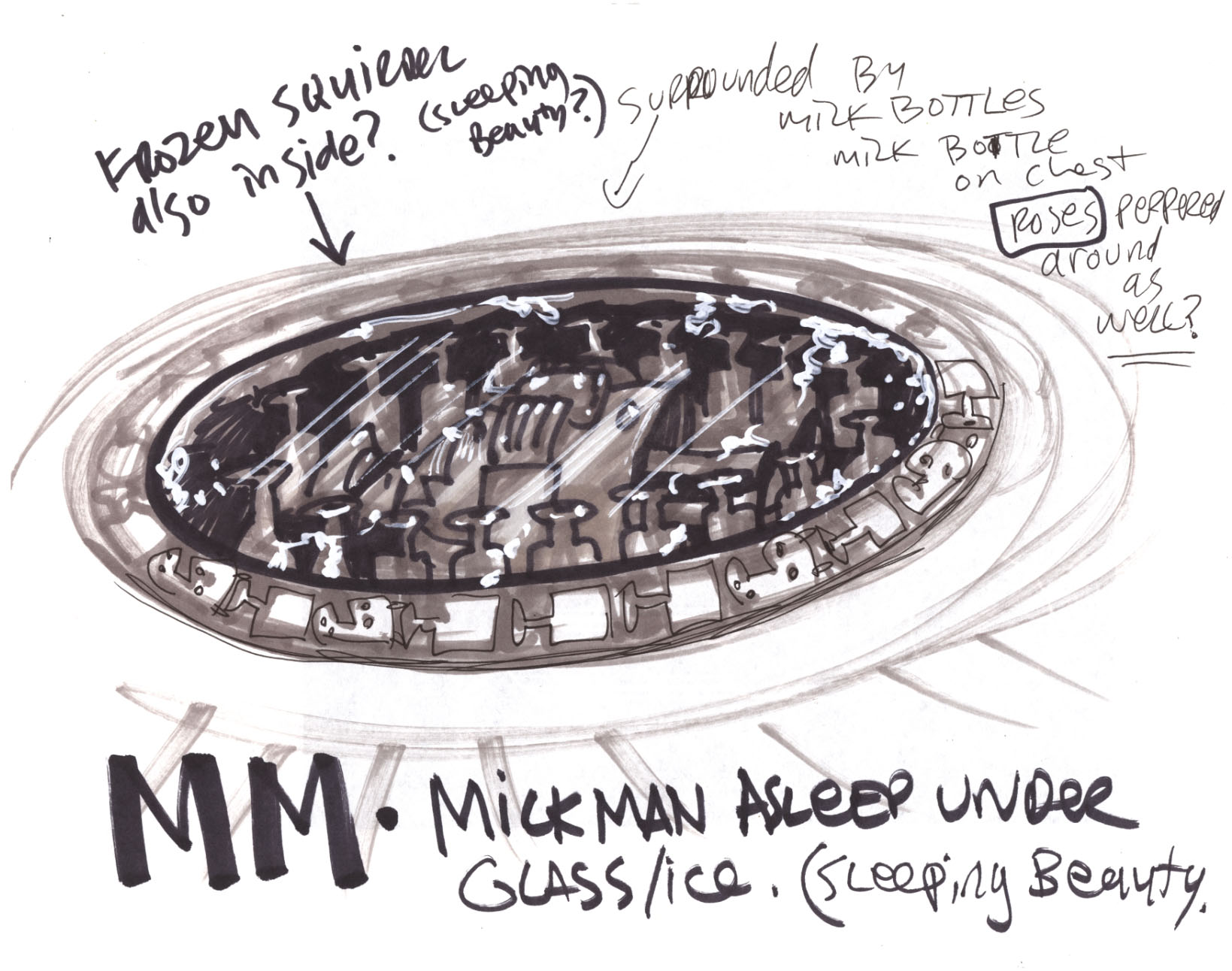
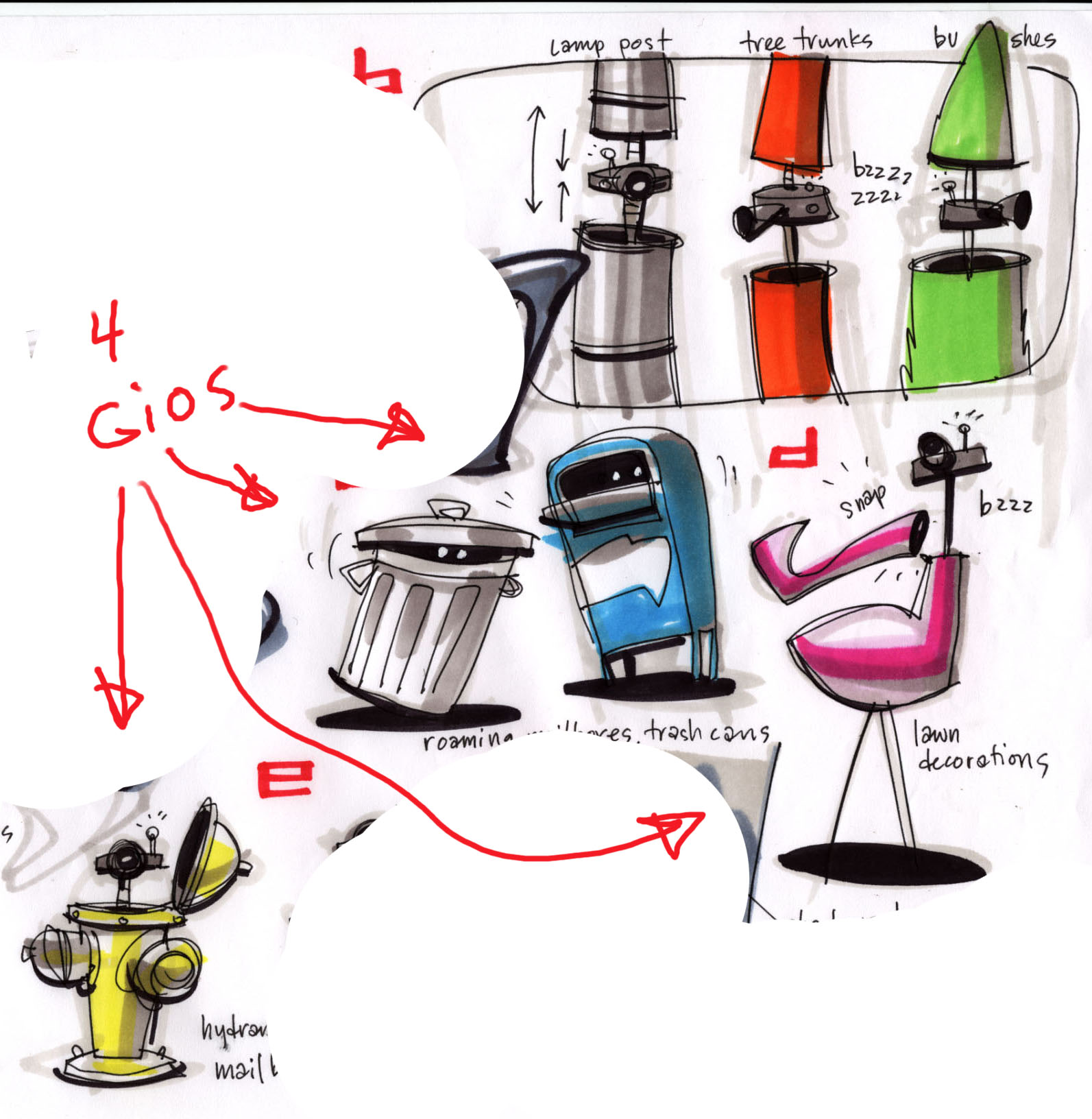
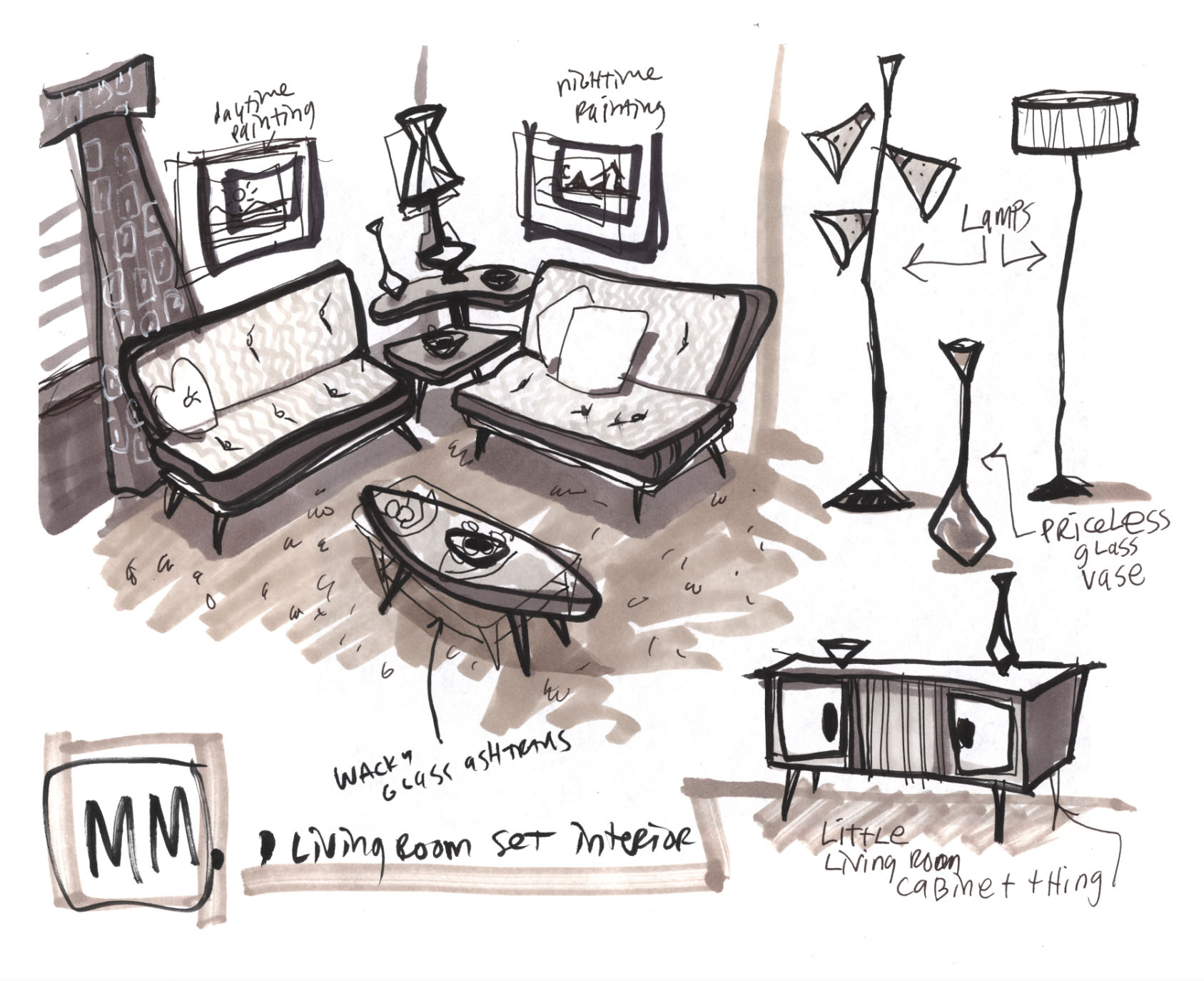
All the things that seem like antagonists, in the level, are… like an immune system trying to understand an alien body in its midst.
Designer Erik Robson
The Milkman Conspiracy ended up much larger than originally planned, partly because of the team's relative gravity tech. The programmers came up with a way to flip gravity as you moved between the twisted, spiralling streets that Chan had drawn, and the camera would react in kind. It worked brilliantly, and the level naturally expanded as Robson took players off in different directions.
The sprawling design also fit into the theme, he says. "Broadly, the goal of every Psychonauts mind level was to express the personality of the character in whatever way possible. I think there was something appealing about it being an open-air maze. That's a weird contradiction that seems consistent with Boyd: 'I'm lost, but I can see everything. I see my goals, but I can't suss out how I'm going to get there.'"
In the end, Robson feels Milkman sprawled too much. "There's maybe two or three of those ambient houses when there should really only be one. As a level designer, my proclivity is to make things too big, so there might be a bit of guilt kicking in there."
Robson also wishes the team could've better expressed Boyd's inner turmoil throughout the level. The opening sequence, where the player uses Clairvoyance on Boyd and sees the conspiratorial scrawls he's made on the walls of his house, is an example of when it worked, because it gave the player a sense of what was to come while revealing something about Boyd's character, Robson says.
"All the things that seem like antagonists, in the level, are… like an immune system trying to understand an alien body in its midst. And that alien body is the what the Milkman represents, this thing that is there and buried, but he can't get rid of, and he knows something bad is going to happen as a result. There are a bunch of things I think we did get, the sort of confusion and how nothing is quite what it seems, the open-air maze. But I think that would have been cool to kind of drive that emotional point home better."
Partly because of these niggles, Robson says he's never thought of Milkman as a standout level. But he says it's one of the funniest, and Schafer's writing undoubtedly brings the whole thing together. Simply written down, the jokes—"The most pleasant sewers can be found in Paris, France"—have almost zero impact. But their deadpan delivery works so well in the context of the level, and the ultra-serious G-Men talking about how "rhubarb is a controversial pie flavor" as they try hopelessly to blend in with their given roles proves to be hilarious.
That was only possible because writing all the dialogue came last. After the designers and gameplay programmers had finished, Schafer would assess every piece of the level, and write dialogue based on all the work that came before. "That was the most solid foundation for the jokes to get layered on top," Robson says. "Half of my memory of Milkman is playing it without any of that dialogue, so that stuff still almost feels like a sort of recent edition. And then after you're done with the level, six or eight weeks later, this dialogue appears all of a sudden in the game."
Schafer tells me he wanted Erik Wolpaw to write the dialogue, but Wolpaw ended up being too busy. "So I ended up writing all the G-Men dialogue myself and I'm so happy I did, because it was so fun," he says. "It's just that matter of fact, straight-laced: 'Who was the milkman? What was the purpose of the goggles?'
"We just happened to be talking about pie a lot, about people thinking rhubarb can be dangerous if you cook it wrong. You can poison people. So it's a very controversial variety of pie—being able to sneak stuff like that in was really fun. It was really relaxing to write in that flat tone. 'My helicopter goes up and down.'"
It's those jokes that I, and many other players, remember best about The Milkman Conspiracy. But for Double Fine, it carries its own legacy: a reminder that "no one person makes a level", Schafer says. "I didn't think of the twisting roads, and I didn't think of the way the G-Men functioned. But I still feel like the ideas that I cared about are in there, and each department got to contribute an essential part of the level. Any one piece of that, you took it away, and it's not the same," he says.
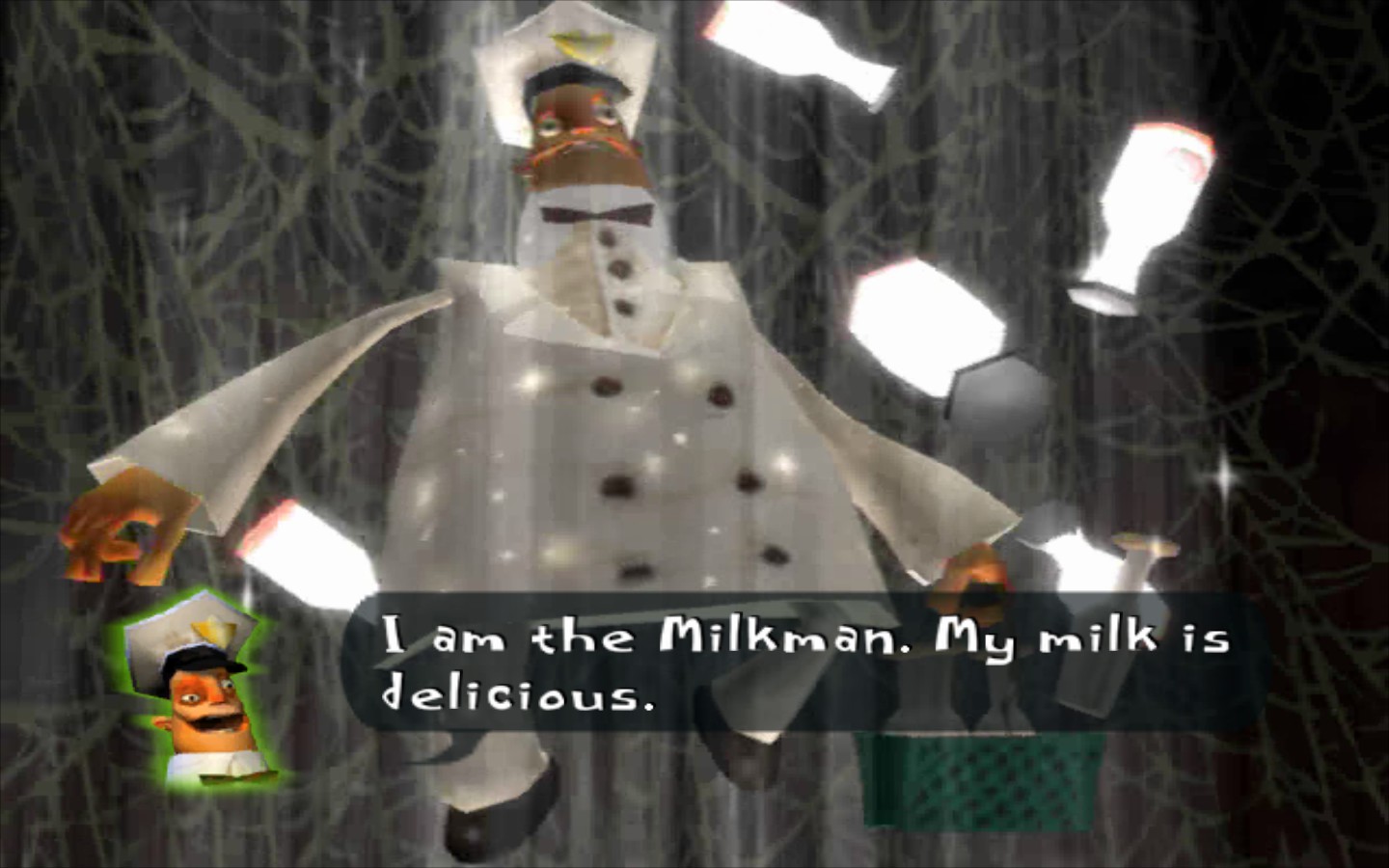
Samuel Horti is a long-time freelance writer for PC Gamer based in the UK, who loves RPGs and making long lists of games he'll never have time to play.


